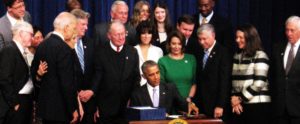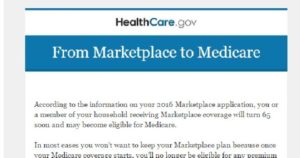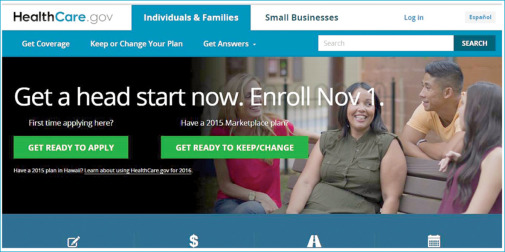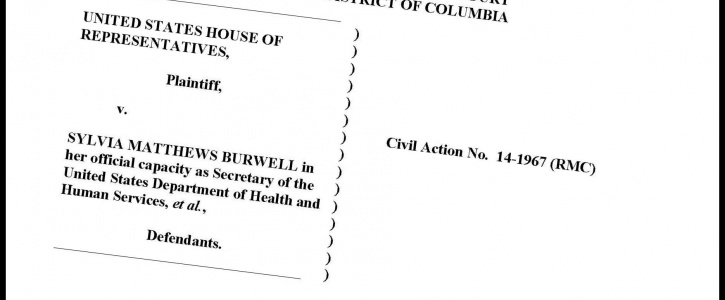 Volume 392, Number 10144
Volume 392, Number 10144
28 July 2018
WORLD REPORT If confirmed, Kavanaugh could tilt the court toward the president’s views on US public health policy. Susan Jaffe, The Lancet‘s Washington correspondent, reports.

…
 Volume 392, Number 10144
Volume 392, Number 10144
28 July 2018
WORLD REPORT If confirmed, Kavanaugh could tilt the court toward the president’s views on US public health policy. Susan Jaffe, The Lancet‘s Washington correspondent, reports.

…
 Volume 391, Number 10117
Volume 391, Number 10117
WORLD REPORT The tax overhaul pushed by Republicans could jeopardise the ACA’s health insurance marketplaces. Susan Jaffe, The Lancet’s Washington correspondent, reports.
…The new tax law contains a provision aimed at an… administration target, the Patient Protection and Affordable Care Act (ACA). Next year, it eliminates the ACA’s tax penalty for Americans who disregard the requirement to have health insurance, one of the law’s most unpopular features. Even though the ACA’s health insurance mandate is still quite intact, Trump and others claim there is effectively no mandate without a penalty.
“When the individual mandate is being repealed, that means Obamacare is being repealed”, Trump said shortly before signing the tax bill into law last month. “And we’ll come up with something that will be much better, whether it’s block grants or whether it’s taking what we have and doing something terrific.” [full story here]
…
Susan Jaffe | Washington Correspondent for The Lancet | 27th December 2017
 Volume 390, Number 10108
Volume 390, Number 10108
WORLD REPORT As the Presidential Commission releases its recommendations, Trump moves closer to defining his policies against the opioid epidemic Susan Jaffe, The Lancet’s Washington correspondent, reports.
“Having failed to recognise how this epidemic was going to grow in proportion and take vigorous enough action, we need to be willing to be far more vigorous so we don’t continue with that mistake,” said Food and Drug Administration Commissioner Scott Gottlieb. [full story here]
…
By Susan Jaffe | Kaiser Health News | Oct. 17, 2017 | This article also ran in  and
and ![]()
 noticed an uptick in mail solicitations from health insurance companies, which can mean only one thing: It’s time for the annual Medicare open enrollment.
noticed an uptick in mail solicitations from health insurance companies, which can mean only one thing: It’s time for the annual Medicare open enrollment.WORLD REPORT After the latest repeal bill was withdrawn and the budget reconciliation has expired, what does the future hold for the ACA? Susan Jaffe, The Lancet’s Washington correspondent, reports.
Republicans claim the ACA isn’t working and point to the rising cost of monthly premiums and the various counties across the USA where only one or two insurers offer coverage through the ACA’s online insurance marketplaces.… “[But] they’re not letting it fail, they’re making it fail,” said Stan Dorn, a senior fellow at Families USA, a consumer advocacy group that worked to help pass the ACA. [Continued here]…
 Volume 390, Number 10099
Volume 390, Number 10099WORLD REPORT As Congress considers how to fund the government next year, scientists hope spending for research will not be curtailed. Susan Jaffe, The Lancet’s Washington correspondent, reports.
The dramatic defeat of the Republicans’ Affordable Care Act (ACA) repeal legislation still looms over the US Capitol as Congress reconvenes this month for more tough decisions, including many that will affect health and science research programmes. …The prospects for science funding will depend on competing budget pressures and political fissures. “There are a lot of moving parts and a lot of uncertainty”, said Matt Hourihan, at the American Association for the Advancement of Science. “And while a spending deal [agreement] is certainly possible, it’s hard to see how they get there from here.” [Continued here]…
By Susan Jaffe | KAISER HEALTH NEWS | July 31, 2017 |This story also ran in 
Ten years ago, a driver ran a stop sign as Jim McIlroy rode into the intersection on his motorcycle. Serious injuries left McIlroy paralyzed from the chest down. But, after spending some time in a nursing home, he returned to his home near Bethel, Maine.
McIlroy does most of his own cooking since Maine’s Medicaid program paid for a stovetop that he can roll his wheelchair underneath to reach the food-prep area. His

Esther Ellis received a new mattress earlier this year from Partners in Care, a nonprofit that runs four of the dozens of sites in California’s Multipurpose Senior Services Program, a Medicaid-funded home services program. (Heidi de Marco/KHN)
new kitchen sink has the same feature. Wheelchair-friendly wood flooring has replaced McIlroy’s wall-to-wall carpeting.
The alterations plus a personal care aide — all paid for by Medicaid — enable McIlroy to stay in his house that he and his wife, who has since died, “worked really hard to own,” he said. The arrangement also saves Medicaid roughly two-thirds of what it would cost if he lived in a nursing home.
McIlroy depends on the federal-state program’s growing support of home-based care services — along with 2 million elderly or disabled Americans who rely on them to live at home for as long as possible.
However, that crucial help could face severe cuts if congressional Republicans eventually succeed in their push to sharply reduce federal Medicaid funds to states. [Continued at Kaiser Health News and USA Today]
…
 Volume 390, Number 10093
Volume 390, Number 10093WORLD REPORT If Congress doesn’t repeal the ACA, President Trump’s changes could go a long way to fulfil Republicans’ pledge to scrap it. Susan Jaffe, The Lancet’s Washington correspondent, reports. [Continued here]
…
[UPDATE: Since this article was published, Medicare officials extended the deadline for applying for an exemption to the Part B late enrollment penalty to Sept. 30, 2018. The announcement came in a fact sheet posted on Oct. 12, 2017.]
Each year, thousands of Americans miss their deadline to enroll in Medicare, and federal officials and consumer advocates worry that many of them mistakenly think they don’t need to sign up because they have purchased insurance on the health law’s marketplaces. That decision can leave them facing a lifetime of enrollment penalties.
Now Medicare has temporarily changed its rules to offer a reprieve from penalties for people who kept Affordable Care Act policies after becoming eligible for Medicare.
“Many of these individuals did not receive the information necessary [when they became eligible for Medicare or when they initially enrolled] in coverage through the marketplace to make an informed decision regarding” Medicare enrollment, said a Medicare spokesman, explaining the policy change.
Those who qualify include people 65 and older who have a marketplace plan or had one they lost or canceled, as well as people who have qualified for Medicare due to a disability but chose to use marketplace plans. They have until Sept. 30 to request a waiver of the usual penalty Medicare assesses when people delay signing up for Medicare’s Part B, which covers visits to the doctor and other outpatient care…
as people who have qualified for Medicare due to a disability but chose to use marketplace plans. They have until Sept. 30 to request a waiver of the usual penalty Medicare assesses when people delay signing up for Medicare’s Part B, which covers visits to the doctor and other outpatient care…
“This has been a problem from the beginning of the Affordable Care Act, because the government didn’t understand that people would not know when they needed to sign up for Medicare,” said Bonnie Burns, a consultant for California Health Advocates, a consumer group. “Once they had insurance, that relieved all the stress of not having coverage and then when they became eligible for Medicare, nobody told them to make that change.”[Continued at Kaiser Health News and NPR]…
25 February 2017
WORLD REPORT Few details have emerged regarding a replacement for the US health law. Susan Jaffe, The Lancet’s Washington correspondent, speaks to stakeholders about the problems they foresee.
Less than 8 hours after Donald Trump took the oath of office as the 45th President of the USA, he signed an executive order reiterating a popular campaign promise: “It is the policy of my Administration to seek the prompt repeal of the Patient Protection and Affordable Care Act [ACA].”

Californians march against the repeal and replacement of the ACA, Feb 4, 2017 / Getty Images
Yet 5 weeks later, the Trump Administration and the Republican controlled Congress cannot agree on whether to repeal and replace it simultaneously—as the president desires—and what the replacement will be. Tom Price, Trump’s new Health and Human Services Secretary, assured senators during his nomination hearing last month that “nobody’s interested in pulling the rug out from under anybody. We believe that it’s absolutely imperative that individuals that have health coverage be able to keep health coverage…”
…The ACA’s uncertain future has rattled health insurers—initial 2018 policies are due as soon as April—and rippled through the health-care system to worried providers and patients. “Like everyone else, we are waiting for more information to be released by the Administration and Congress”, said Jan Emerson-Shea, a spokeswoman for the California Hospital Association, a state with more than 1·5 million patients enrolled in ACA insurance plans. [Continued here] …
Susan Jaffe | Washington Correspondent for The Lancet | 14 December 2016
The 21st Century Cures Act that President Barack Obama signed into law this week dedicates – but doesn![]() ‘t guarantee – billions of dollars to accelerating the discovery of new drugs and medical devices and getting them to patents more quickly, as well as supporting opioid addiction treatment and reforms in mental health care.
‘t guarantee – billions of dollars to accelerating the discovery of new drugs and medical devices and getting them to patents more quickly, as well as supporting opioid addiction treatment and reforms in mental health care.

President Barack Obama signs the 21st Century Cures Act, Tuesday, Dec. 13, 2016. (Photo by Susan Jaffe)
The overwhelming support for the law marks a stark contrast from the Affordable Care Act, another landmark health reform bill Obama signed in the second year of his presidency. Republicans promise to repeal it as soon as the new Congress convenes next month and Donald Trump is sworn in as president. But before the promised elimination of the ACA, Congress took nearly $5 billion from its Prevention and Public Health Fund to pay for most of the law.[Continued here.]
…
5 November 2016
WORLD REPORT The presidential candidates have different ideas about improving US health care. Susan Jaffe, The Lancet’s Washington correspondent, reports.
The future of the Affordable Care Act, President Barack Obama’s signature health law, depends largely on the next occupant of the White House. Trump, the Republican candidate for president, wants to repeal and replace the law. Clinton, his Democratic opponent, wants to improve and expand it. [Continued here]
…
By Susan Jaffe | Kaiser Health News | October 14 2016 | This KHN story also ran in ![]()
Ever since the Affordable Care Act’s health insurance marketplaces opened for business in 2014, the Obama administration has worked hard to make sure Americans sign up. Yet officials now are telling some older people they might have too much insurance and they should cance l their marketplace policies.
l their marketplace policies.
The federal Centers for Medicare & Medicaid Services is targeting two groups. First the agency is sending emails each month to about 15,000 people with subsidized marketplace coverage. The messages arrive a few weeks before their 6
5th birthday, which is also the age most people become eligible for Medicare. The email reminders will go to enrollees in the 38 states that use the federal marketplace.
“In most cases you won’t want to keep your Marketplace plan because once your Medicare coverage starts, you’ll no longer be eligible for any premium tax credits or other cost savings you may be getting for your Marketplace plan,” the notice says. “To avoid an unwanted overlap in Marketplace and Medicare coverage … tell us you want to end your Marketplace plan.”
…Beneficiaries shoulder a lot of responsibility, even though there is no requirement they all be told what to do and when. Only the individual can terminate marketplace coverage when he or she becomes eligible for Medicare. Inaction means paying back any coverage subsidies received after they should have joined Medicare. [Continued in Kaiser Health News or The Washington Post]
…Susan Jaffe | Washington Correspondent for The Lancet | 29 July 2016![]()
Vermont Sen. Bernie Sanders stressed the need for unity when he addressed the convention on its first day, citing the Democratic party platform as evidence of the gains his supporters have achieved. “It is no secret that Hillary Clinton and I disagree on a number of issues … that’s what democracy is about,” Sanders told the convention. “But I am happy to tell you that at the Democratic Platform Committee, there was a significant coming together between the two campaigns and we produced, by far, the most progressive platform in the history of the Democratic Party.” [continued here] [listen to podcast here]…
Susan Jaffe | Washington Correspondent for The Lancet | 15 July 2016![]()
Cleveland, OH – The Republican Party’s platform committee approved a blueprint this week that reflects the core principles of its most conservative wing, describing how a Republican presidential candidate would govern if elected.

Photo:SUSAN JAFFE
Several delegates said they don’t expect the presumptive Republican presidential nominee, Donald Trump, to agree with every point and that’s OK.
“With Mr. Trump, on a lot of these issues, he’s with us,” said Melody Potter, a member of the Republican National Committee from Charleston, West Virginia. “We know for a fact that Hillary Clinton is not with us.”
…Reporters attending the platform committee meetings this week were not allowed to see copies of the roughly 50-page document delegates discussed. But some delegates were willing to mention some health care provisions. [Continued] …
Billionaire real estate developer Donald Trump’s unorthodox campaign to become the Republican presidential nominee has dominated the 2016 political race, nearly overshadowing some unconventional contenders on the Democratic side. The result is a political season that has defied the odds makers.
Former US Secretary of State and Senator from New York, Democrat Hillary Clinton may be well on her way to becoming the first woman in US history to win her party’s nomination for president. Vermont Senator Bernie Sanders, a self-proclaimed socialist, is trailing Clinton in the number of delegates needed to win the nomination. Yet his popular call for “a political revolution” continues to slowly raise his delegate count. [MORE]
…
By Susan Jaffe | Kaiser Health News | September 23, 2015 | This KHN story also ran in ![]()

Belle Likover, a 95-year-old retired social worker, told Case Western Reserve medical students that growing old gracefully is all about being able to adapt to one’s changing life situation, including health challenges. Lynn Ischay/Kaiser Health News
 t been easy—surviving two Supreme Court challenges, nearly done-in by embarrassing technical glitches, and more than 50 congressional votes attempting to dismantle it. But its troubles are not yet over: enrolling new beneficiaries “is going to be tougher than last year”, warned Health and Human Services (HHS) Secretary Sylvia Mathews Burwell.
t been easy—surviving two Supreme Court challenges, nearly done-in by embarrassing technical glitches, and more than 50 congressional votes attempting to dismantle it. But its troubles are not yet over: enrolling new beneficiaries “is going to be tougher than last year”, warned Health and Human Services (HHS) Secretary Sylvia Mathews Burwell.

 Volume 386, Issue 9996, 29 August 2015
Volume 386, Issue 9996, 29 August 2015
WORLD REPORT Bills providing extra funding for the National Institutes of Health while cutting other programmes could a face presidential veto. Susan Jaffe, The Lancet’s Washington correspondent, reports.
 Volume 386, Issue 9992, 1 August 2015
Volume 386, Issue 9992, 1 August 2015
WORLD REPORT In July, 1965, Medicare, America’s landmark national health insurance programme, became law. Today, it covers 55 million people. Susan Jaffe, The Lancet’s Washington correspondent, reports.
By Susan Jaffe | July 13, 2015 | Kaiser Health News in collaboration with ![]()
After nearly 30 years, the Obama administration wants to modernize the rules nursing homes must follow to qualify for Medicare and Medicaid payments.
The hundreds of pages of proposed changes cover everything from meal times to use of  antipsychotic drugs to staffing. Some are required by the Affordable Care Act and other recent federal laws, as well as the president’s executive order directing agencies to simplify regulations and minimize the costs of compliance.
antipsychotic drugs to staffing. Some are required by the Affordable Care Act and other recent federal laws, as well as the president’s executive order directing agencies to simplify regulations and minimize the costs of compliance.
“Today’s measures set high standards for quality and safety in nursing homes and long-term care facilities,” said Health and Human Services Secretary Sylvia M. Burwell. “When a family makes the decision for a loved one to be placed in a nursing home or long-term care facility, they need to know that their loved one’s health and safety are priorities.”
in a nursing home or long-term care facility, they need to know that their loved one’s health and safety are priorities.”
Officials announced the update as the White House Conference on Aging convenes Monday. The once-a-decade conclave sets the agenda for meeting the diverse needs of older Americans, including long-term care options. This month also marks the 50th anniversary of the Medicare and Medicaid programs, which cover almost 125 million older, disabled or low-income Americans. Medicare and Medicaid beneficiaries make up the majority of residents in the country’s more than 15,000 long-term care facilities. [MORE from Kaiser Health News and NPR]…
Every month, a group of older adults goes to Washington’s Sibley Memorial Hospital, but they don’t see a doctor or get tests. They’re not sick. They come just for laughs.

Joanne Philleo, 79, enjoys a joke at the monthly “Laugh Cafe” event at Sibley Memorial Hospital. (Amanda Voisard for The Washington Post)
They gather in a room next to the hospital cafeteria for the “Laugh Cafe,” one of the activities offered to local seniors, including the 7,300 members of Sibley’s Senior Association. The price of admission is one joke, recited out loud. Experts say laughing can be good for your health, and everyone in the room strongly agrees.
…The association for those age 50 or older also offers other activities, including French and Italian conversation classes, day trips to museums, a current events group, and — the latest addition — tango lessons. In addition, members receive discounts on hospital parking and at the gift shop, pharmacy and restaurant. In all, more than 10,000 seniors participate.
Sibley is one of several hospitals in the Washington area — along with others across the country — offering social activities and other benefits to help seniors stay healthy and out of the hospital, while encouraging them to visit. Participants do not need to have been patients.
But some experts are concerned that the activities are less about health than about marketing to Medicare beneficiaries, especially those who can go to the hospital of their choice when they need care because they are not enrolled in private insurance plans with limited provider networks.[Continued in Washington Post]…
Volume 385, Issue 9988, 4 July 2015
WORLD REPORT Officials expect to launch the US President’s new health project later this year. But Congress has yet to decide whether to fully fund it. The Lancet’s Washington correspondent, Susan Jaffe, reports.
Although critics still deride it as Obamacare, President Barack Obama’s Supreme Court victory last week
enshrined the Affordable Care Act (ACA) as one of his greatest domestic accomplishments. The court might have also effectively disarmed the opposition, shifting the debate to next year’s campaign for the presidency as the next chance for critics to try to dismantle the law.
But for 6·4 million Americans who could have lost the health law’s insurance subsidies—the key issue before the court—the historic ruling has a different meaning. “Thank God, I can still get my medical care”, said Jacqueline Clay, a New Jersey woman receiving treatment for breast cancer who turned 61 years of age the day the court upheld the subsidies. “I am not going to die.” [Continued in full text or PDF ]…